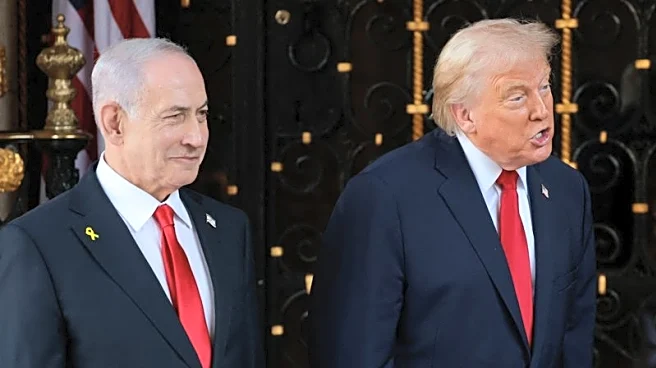What is the story about?
What's Happening?
A U.S. federal judge has issued a temporary restraining order preventing the Trump administration from deporting unaccompanied Guatemalan children. The decision came after an emergency appeal by the National Immigration Law Center, which argued that the deportations would violate legal protections for vulnerable children. The order affects children who were already on planes and potentially hundreds more in government shelters. The Trump administration had planned to deport these children under an agreement with Guatemala, but the judge's order has temporarily halted these efforts. The children, aged 10 to 17, are currently in the custody of the U.S. Department of Health and Human Services' Office of Refugee Resettlement.
Why It's Important?
This legal intervention highlights ongoing tensions and legal challenges surrounding U.S. immigration policy, particularly concerning the treatment of unaccompanied minors. The decision underscores the judiciary's role in checking executive actions that may conflict with established legal protections for immigrants. The outcome of this case could have significant implications for U.S. immigration enforcement strategies and the rights of unaccompanied minors. It also raises questions about the humanitarian responsibilities of the U.S. government and the potential risks faced by children if returned to their home countries.
What's Next?
The temporary restraining order is set for 14 days, during which further legal proceedings will determine the fate of the affected children. The Department of Justice may seek to challenge the order, while advocacy groups are likely to continue their efforts to secure permanent protections for these minors. The case could prompt broader discussions and potential policy reviews regarding the treatment of unaccompanied migrant children in the U.S.
Beyond the Headlines
The case brings to light ethical considerations regarding the deportation of vulnerable children and the potential consequences they face upon return to their home countries. It also highlights the complex interplay between immigration policy and international human rights obligations, as well as the role of advocacy groups in shaping public policy.

















